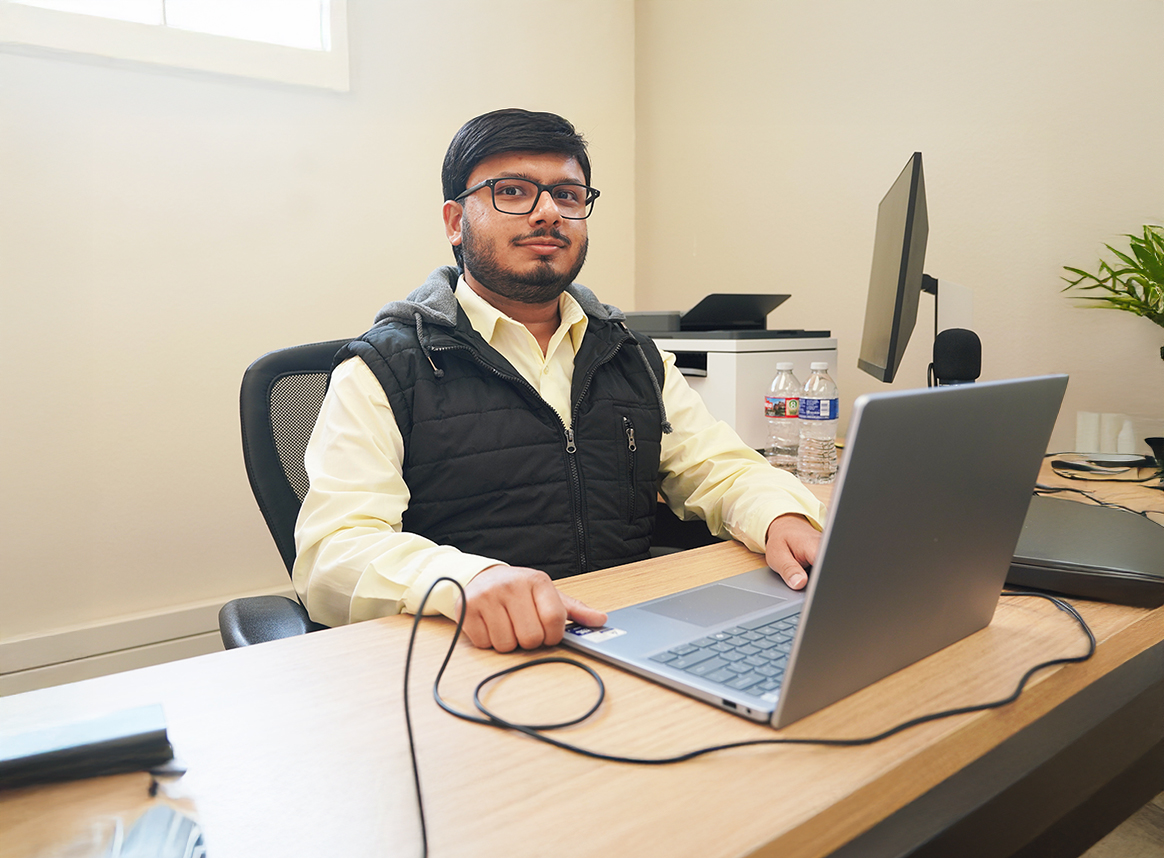Mines Professor Among World’s Top 2% Scientists

Nirmalya Thakur, Ph.D., assistant professor in the Department of Electrical Engineering and Computer Science at South Dakota Mines, has been included in the world’s top 2% scientists, a prestigious list that recognizes researchers whose work ranks among the most impactful in the world across all scientific disciplines.
“Dr. Thakur’s recognition among the world’s top scientists reflects the exceptional caliber of research taking place at South Dakota Mines,” said Brian Tande, Ph.D., Mines president. “His work at the intersection of artificial intelligence and human behavior not only advances global understanding in these critical fields but also exemplifies our university’s commitment to using science and engineering to make a positive difference in people’s lives.”
The list, compiled by Stanford University and publishing company Elsevier, evaluates more than nine million scientists globally based on standardized citation metrics that objectively measure the global impact of scientific research. The analysis classifies researchers into 22 broad fields and 174 subfields, identifying those who rank among the top 2% in their respective subfields. Thakur’s inclusion is in the broad field of information and communication technologies, with primary recognition in artificial intelligence and image processing and secondary recognition in computation theory and mathematics.
“I am honored to be included on the Stanford–Elsevier global list of top 2% scientists,” Thakur said. “My research leverages interaction data from people's everyday activities—both within smart home environments and on digital platforms such as social media—to address critical societal challenges through the responsible use of artificial intelligence, machine learning and natural language processing.”
Thakur’s work explores how public sentiment, misinformation and anxiety evolve during global health crises while also advancing intelligent, adaptive technologies that enhance safety, autonomy and quality of life for older adults.
“By connecting insights from how humans behave and interact across both physical and digital spaces, my goal is to design data-driven systems that are human-centered, trustworthy, and capable of improving lives in meaningful and measurable ways,” he said. “Being recognized alongside some of the most influential scientists in the world is both humbling and deeply motivating.”
Also recognized by the IEEE Computer Society as one of the Top 30 Early Career Professionals of 2024, Thakur has recently developed the first emotion-driven navigation system for AI agents. His project, Emotional Detours, enables AI agents to recover from setbacks and continue efficiently toward their goals, mirroring how people overcome challenges in daily life.